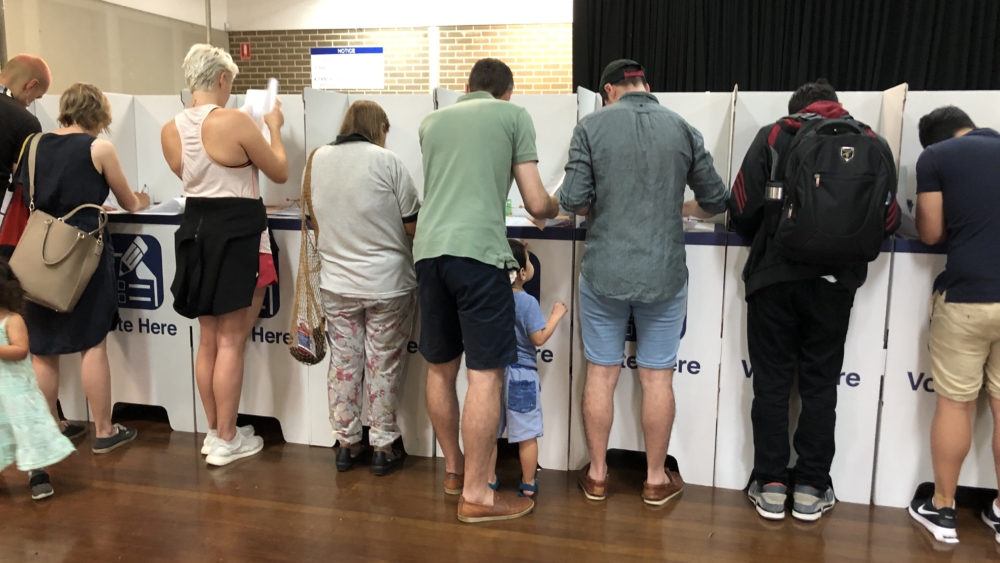FamilyVoice’s Greg Bondar thinks the Religious Discrimination Bill will not make it.
The 2022 Australian federal election must be held on or before 21 May 2022 to elect members of the 47th Parliament of Australia. The incumbent Liberal/National Coalition Government, led by Prime Minister Scott Morrison, is seeking to win a fourth consecutive term in office.
In 2018 Scott Morrison promised a Religious Discrimination Act to protect Australians’ religious freedoms, an issue which was taken to the 2019 federal election in May.
Some three years down the track we now have a Religious Discrimination Bill (RDB) which, looking more like a dog’s breakfast, will be released next week.
So, has the government delivered on its promise to introduce an RDB? Yes. Will the Religious Discrimination Bill become legislation before the next election? Unlikely to No.
When Scott Morrison announced the ‘miracle’ win in 2019, steps were taken to start the ball rolling on drafting and implementing the promised RDB and the then Attorney General (AG) began community discussions with stakeholders including some 40 faith organisations including FamilyVoice Australia.
Those ‘consultations’ resulted in division, uncertainty with some questioning the need or relevance for such a bill. However, in the midst of this division, the government shelved the RDB as COVID emerged, arguing that the government now needed to prioritise COVID as a national emergency – and rightly so.
It seems that the timing of the RDB is either politically astute planning or extremely poor legislative planning
This unintended consequence meant that the RDB was put at the bottom of the government’s pending bills ‘in tray’ putting serious debate and consultations on hold until 2021.
Enter Michaelia Cash, the new Attorney General. On 30 March 2021, Senator Cash was appointed the Attorney-General and Minister for Industrial Relations – the Coalition’s first female Attorney-General.
She resurrected the RDB and, like the former Attorney General, began genuine consultations with the wider community and especially faith groups. FamilyVoice Australia held numerous ‘private’ meetings with the AG with a view to clarifying the government’s intent on protections to churches, schools, and indeed individuals.
These consultations resulted in two federal government Inquiries in late 2021 early 2022 with the RDB now set to be introduced commencing 8 February 2022.
The timing for federal elections is determined by a combination of the Commonwealth Electoral Act 1918 (the Act) and the Australian Constitution which dictates that the election day must be no later than 21 May 2022.
If the Act requires at least 33 days between the issue of the writ (the writ is an instruction to the Australian Electoral Commission (AEC) to hold an election) and polling day (although it can be as long as 68 days after Parliament is dissolved), then the time frame for the passing of the RDB is far too short or making it virtually impossible for the Bill to see the light of day before the election.
It seems that the timing of the RDB is either politically astute planning or extremely poor legislative planning – either way this, for the skeptics, would work well for the government as it prevents it from having to commit the Bill to the electorate before the election.
So, if the election day must be a Saturday, it is easy to determine the last possible day on which an election must be called to be held on a certain day.
Historically, a federal election has never been held in January or February so we can safely assume that the Government will avoid a February election which means there are 12 Saturdays between 5 March 2022 and 21 May 2022 on which the election could be held. Not all of these Saturdays are likely to be an election day as the election is unlikely to be on the Easter (16 April 2022) or ANZAC Day long weekends (23 April 2022).
An inspection of the parliamentary sitting calendar indicates that the federal Budget will be on 29 March 2022. Whilst the Government can change the sitting calendar, and there is no guarantee that the Budget will be held on the scheduled day, it only leaves three possible election days (7, 14 and 21 May).
Any 2022 election held before 7 May 2022, would, according to the proposed sitting calendar, only have the Parliament sit during the February sitting weeks (and only the first week for a 19 March election).
This means that any legislation the Government wants to pass in the current term would need to be passed by both Houses by the end of that sitting. An election on 14 or 21 May would potentially allow the March and April sitting periods to also go ahead.
To complicate matters, the South Australian state election is listed for 19 March 2022 and whilst that election can be deferred so as not to clash with a federal election (see section 28 of the South Australian Constitution), the available dates for an election are narrowing.
To further complicate matters, governments try to avoid holding elections during school holidays, and with the need for postal and pre-poll voting, the Electoral Legislation Amendment (Counting, Scrutiny and Operational Efficiencies) Act 2021 in August 2021 reduced the early voting period to no more than 12 days, so only three 2022 dates would include Easter or ANZAC Day in the early voting period (two of which are unlikely election days due to Easter and ANZAC Day).
So, will the Religious Discrimination Bill see the ‘Light of Day’? – not on your nelly. Alea iacta est
Email This Story
Why not send this to a friend?


